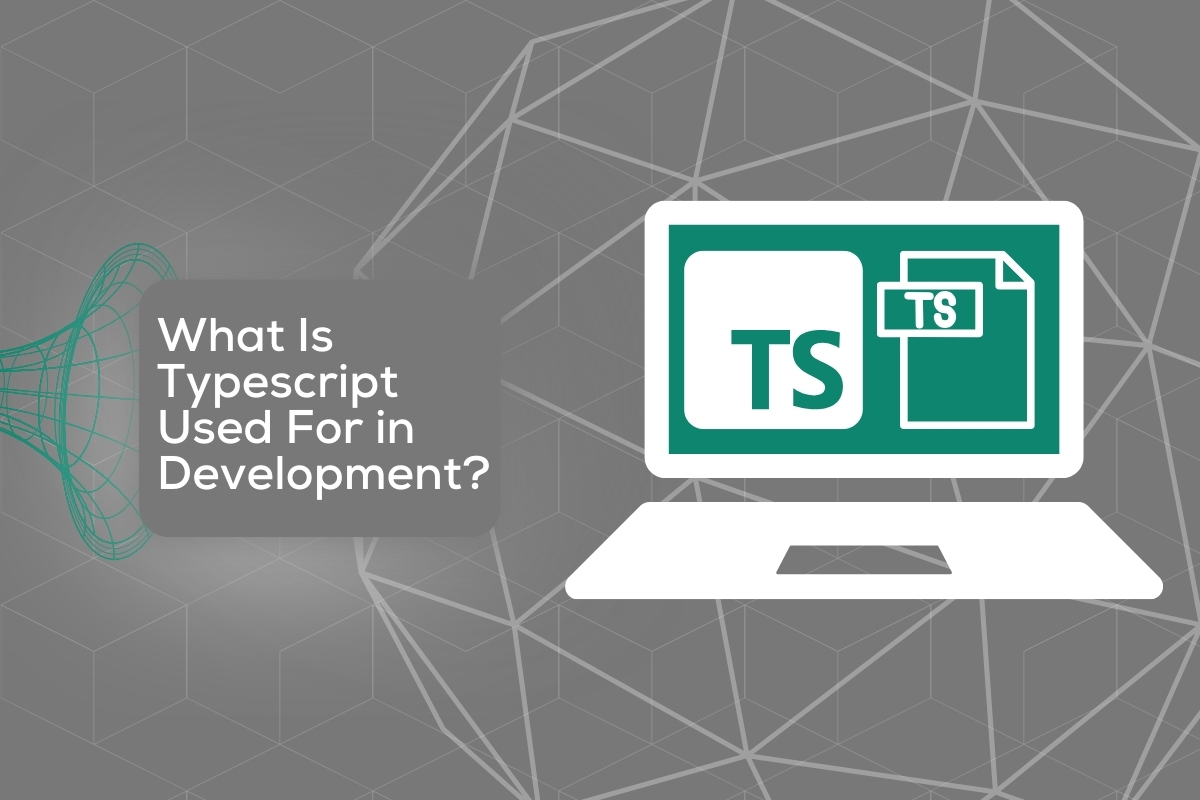Modern web development has brought many changes, one of them being easier and worry-free coding. Among the variety of choices available, TypeScript has quickly become the fifth most used programming language among worldwide developers. So, what is TypeScript used for? Let’s get started on everything you need to know.
What Is TypeScript?
TypeScript (TS) is a powerful programming language developed and open-sourced by Microsoft in 2012 as a superset of JavaScript (JS). Its primary feature is optional static typing, which is a significant improvement over JS’s dynamic typing.
This helps developers manage large-scale production applications more efficiently, reducing bugs and errors in the code. TS offers many other amazing features, and as a result, it’s experiencing rising popularity. TypeScript’s expressiveness is best seen through its various types. With them, you can easily address different functions and properties, and the overall software development is more efficient.
TS is predominantly utilized by Angular developers, though it also receives strong support from other frameworks. Currently, 60% of JS developers employ TypeScript, and an additional 22% are interested in experimenting with it.
What Are the Main Advantages of TS?
TS builds upon JS, offering an improved experience for developers and overall desktop and mobile app development services. It enables programmers to incorporate type safety into their projects and offers functionalities such as type aliases, interfaces, abstract classes, encapsulation, inheritance, and function overloading. Here are other advantages you’ll experience using this programming language.
- Better code maintainability and quality – TS’s static typing improves code clarity and consistency, simplifying maintenance and enhancing overall quality.
- Error detection – The type system here promptly flags coding errors, reducing bugs and streamlining development.
- Improved productivity – TS enhances productivity with intelligent autocompletion and efficient type definition navigation, speeding up development.
- Boosted collaboration – Easier collaboration through clear, self-documenting code and consistent coding standards, ideal for team projects.

What Is TypeScript Used For?
Having mobile app architecture on their mind, many big names have made some crucial changes in their developing strategies. For example, Asana, Airbnb, Lyft, and Google migrated some of their codebases to TS.
TS, a robust extension of JavaScript, is primarily utilized in the development of large-scale applications where maintaining code quality and preventing errors is crucial. Here are other scenarios where TS is used.
Dealing With a Large Codebase
In the context of a substantial codebase, particularly when a project involves multiple developers, the implementation of a type system like TS is highly beneficial. It’s especially effective in avoiding common mistakes in projects like single-page applications.
Having a safeguard in place is crucial, especially in scenarios where a developer might inadvertently introduce significant changes or errors. TS assists in this aspect by highlighting clear errors through its transpiler, though it doesn’t entirely replace the necessity for debugging.
Working With a Framework or Library That Recommends TS
If you’re working with Angular 2 or any other library that suggests using TS, it’s advisable to proceed with it. Keep in mind that while TS is compatible with all JavaScript libraries right away, for enhanced syntax error detection, you should incorporate external type definitions for these libraries.
Time Limited Projects
TypeScript is designed to boost efficiency in more complex application development. But how is it achieved? Since simplicity is the main character here, the answer is simple as well – with Integrated Development Environments (IDEs). With IDEs, you can create a more robust environment that identifies common mistakes as you input code.

Is TypeScript Better Than JavaScript?
TypeScript, as a superset of JavaScript, inherits all of JavaScript’s features while adding its own layer of static typing and other enhancements. This added layer allows for more robust error checking, better tooling support, and improved readability of the code, making it a favorable choice for large-scale and complex projects.
However, comparing these two and whether TS is “better” than JS largely depends on the project requirements and developer preference. For simple projects or those requiring quick prototyping, JS’s flexibility and ease of use might be more advantageous. On the other hand, for larger, more complex applications, TS’s type safety and scalability come to the forefront. To get the bigger picture, here’s the table of the main differences between TS and JS.
| JavaScript | TypeScript | |
|---|---|---|
| Designer and release | Designed by Brendan Eich (Netscape), released in 1995 | Designed by Microsoft, released in 2012 |
| Description | Lightweight scripting language for dynamic web content; supported by all browsers | Superset of JavaScript developed to manage code complexity in large projects (OOP language) |
| Typing system | Dynamic typing, weakly typed (no static typing option) | Strongly typed, supports both static and dynamic typing |
| Project Suitability | Best suited for small projects | Best suited for large web applications |
| Browser Usage | It can be directly used in browsers | Converted into JavaScript for browser compatibility (uses a transpiler) |
| Library Compatibility | JavaScript libraries work by default | Compatible with all JavaScript libraries and code without changes |
TypeScript’s Potential With Juratech Solutions
If you’re still wondering what TypeScript is used for, it’s probably the right time to get professional help. After all, TypeScript stands as a powerful tool in the modern development world. With its amazing capabilities, it is no wonder why many developers choose TS.
Take advantage of the full potential of TypeScript in your projects with Juratech Solutions. We’re a desktop and mobile app development company, and our professional team will bring all the advantages of this programming language to drive your project’s success. Contact us today to explore how we can elevate your development experience with TypeScript.







